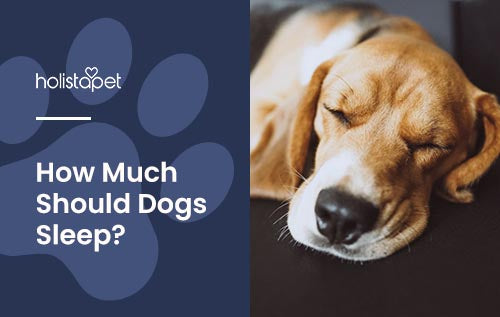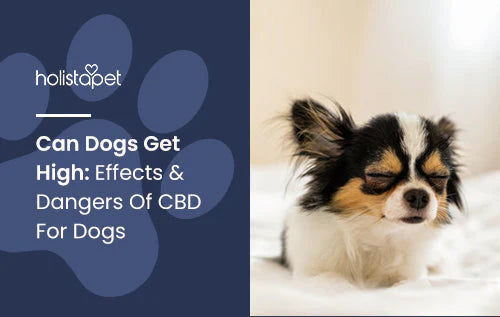If you're wondering how much sleep dogs need, the honest answer is it depends on their age. Puppies sleep a lot—think up to 18-20 hours a day. Adult dogs usually need around 12-14 hours of snooze time, while seniors might need even more rest to recharge those older bones.
Each life stage comes with different sleep needs. High-energy canines, like working breeds, may sleep less during the day but still need solid rest in the evenings to stay fueled up. On the flip side, older dogs or those with lower energy levels might need extra Z's to stay healthy. Keep an eye on your canine bestie's sleep habits, and you'll be a pro at making sure they get enough rest!
How Many Hours a Day Do Dogs Sleep?
On average, most dogs sleep between 12 to 14 hours a day. But don't worry if your pooch hits that snooze button for more or less. It all depends on their age, breed, and how much they've been running around.
Puppies and older dogs tend to need more sleep. They're working hard to grow or recover, so it's only normal if they nap frequently. Active adult dogs might stay awake longer, but big breeds often need a bit more shut-eye to keep up their energy.
Dogs' sleeping habits also differ greatly from ours. Our canine friends have light sleep cycles, meaning they're quick to wake up and stay aware of their surroundings. Ever noticed your dog's ears perk up at the tiniest noise? That's their super-alert sleep mode kicking in.

Adult dogs typically need around 12 to 14 hours of sleep a day, but that can change depending on your pet's breed and how much action they're getting. For example, working dogs might need less sleep since they're on the go all day. But if your pet's more of a couch potato, they may need some extra time to rest and recharge those batteries.
Keep an eye on your dog's nightly habits. If they're dozing off peacefully at night and staying active during the day, chances are they're hitting the right amount of restful sleep. If they seem overly tired or sluggish, it might be time to adjust their routine.
Does a Dog's Size Affect the Hours of Sleep Needed?
Yes, size does matter when it comes to the amount of sleep your dog needs. Larger breeds like Great Danes or Saint Bernards can sleep up to 18 hours a day. They need that extra shut-eye to recharge and keep their energy up. Meanwhile, smaller dogs like Chihuahuas may not need as much rest.
The difference lies in their energy and metabolism. Big dogs have slower metabolisms, so they need more snooze hours to recover. Small dogs are usually more energetic and don't need as much downtime. When you understand your pup's size-related sleep needs, you can help them power up for all their adventures.
How Much Sleep Do Puppies Need?
Puppies need a ton of sleep, around 18 to 20 hours a day. During sleep, their little bodies get busy building strong bones, muscles, and an immune system that'll help them take on the world. Plus, their brains are working overtime while they snooze to process everything they're learning.
Since puppies are always playing, learning, and exploring, they burn through a lot of energy during their waking hours. Giving them plenty of sleep helps them stay healthy and happy and grow strong. It's basically their secret to becoming the energetic adult dogs they're destined to be.
How Much Sleep Do Senior Dogs Need?
Senior dogs need a bit more sleep, around 16 to 18 hours a day. As dogs age, their energy levels drop, and their bodies need more time to rest and recover. Extra sleep helps them cope with a slower metabolism and keeps them feeling their best.
Older dogs often experience changes in their sleep patterns, like waking up more often at night and taking longer naps during the day. Ensuring they get enough rest is crucial for maintaining their quality of life, keeping them comfy and content as they age gracefully.
Why Do Dogs Sleep So Much?
Dogs sleep a lot because their bodies need it to recharge and recover. Sleep helps them bounce back from physical activity, supports their immune system, and helps them process and store information from their day. Since dogs have shorter, lighter sleep cycles than humans, they need more time to get the same benefits.
Dogs' instincts play a role, too. In the wild, canines sleep during the day to save energy for their dawn and dusk hunts. Even though your pooch isn't hunting, those same instincts stick around, and they often sleep during the day to keep their energy up for when it matters most.
Is It Bad if My Dog Sleeps All Day?
It's not always bad if your dog sleeps all day, but it could be a sign of something else. If your pet is sleeping way more than usual, it might mean they're bored or not getting enough stimulation. Sometimes, excessive sleep could also point to an underlying health issue.
If your pup's snooze time increases and they're less excited about their usual activities, it's worth checking in with an expert. Track your dog's sleep patterns and talk to your veterinarian if you notice anything off. Your vet can help figure out what's going on and rule out any health concerns.

Healthy vs Unhealthy Sleeping Patterns in Dogs
Healthy sleeping patterns in dogs strike a balance between rest and play. Look for these positive signs:
-
Regular Sleep Duration. Most dogs sleep between 12 to 14 hours a day, with a healthy mix of deep sleep and lighter naps.
-
Alert and Active. Dogs with healthy sleeping habits stay alert, playful, and curious when they're awake.
-
Consistent Sleep Schedule. A steady bedtime routine is a great sign that your dog's sleep habits are on point.
On the flip side, unhealthy sleeping patterns can affect your dog's health. Keep an eye out for these warning signs:
-
Excessive Sleep. Sleeping way more than usual could mean boredom, insufficient stimulation, or a health issue.
-
Difficulty Waking Up. Struggling to wake up and showing signs of lethargy are clear red flags.
-
Restless Nights. If your pooch wakes up frequently or changes their bedtime behavior, it might be a sign of discomfort or a bigger problem.
What if My Dog Doesn't Sleep and Is Restless at Night?
Frustration, discomfort, or not enough exercise during the day might be the reason your dog doesn't sleep well and seems restless at night. You need to spot any potential triggers, such as changes in their environment or routine.
To help your dog settle down, try mixing up their daily routine with more exercise and mental stimulation to tire them out. Creating a calm, quiet space at bedtime can also work wonders. If your furry friend's restlessness persists, go to your veterinarian for help.
How To Support Sleep for Dogs
Want your dog to sleep like a champ? Here's how to help them get the best rest:
-
Consult Your Vet To Exclude Medical Issues. A vet visit can help rule out any underlying medical conditions.
-
Plan and Fulfill Your Dog's Daily Needs. Keep them moving! Exercise and mental stimulation are key to burning off that extra energy, so they can snooze peacefully.
-
Establish a Tranquil Sleep Environment at Home. A quiet, comfy space is essential for great sleep. Set up a cozy dog bed where they can curl up and relax.
-
Develop a Consistent Bedtime Routine With Your Dog. Dogs love routine. Keep it consistent, and they'll know it's time to wind down and catch those Z's.

Are There Sleep Aids for Dogs?
Yes, there are sleeping aids available for dogs. Natural remedies like melatonin or CBD supplements can help your dog relax and drift off to dreamland. But before you try anything, always check with your vet first. They'll make sure the product is suitable and works for your pup's needs. Better safe than sorry, right?
HolistaPet Sleep Support Options for Dogs
Looking to help your dog sleep better? HolistaPet's got your back with natural, vet-approved products that'll have your pup snoozing soundly. Our products are dairy-free, gluten-free, non-GMO, and third-party lab-tested to ensure the highest quality for your furry buddy. Here's what we offer:
- CBD Calming Chews for Dogs. Soothing soft chews containing broad-spectrum CBD (cannabidiol). Fun fact: All our CBD products use broad-spectrum CBD, which has no THC (tetrahydrocannabinol), the mind-altering compound in cannabis.
- CBD Dog Treats for Anxiety. These calming CBD treats help agitated pups. When CBD interacts with the canine endocannabinoid system (ECS), which plays a role in mood, sleep, and stress response regulation, dogs experience a calming effect, helping ease their worries.
- CBD Oil for Dogs. Our dog CBD oil comes in a dropper bottle for easy and precise dosing. You can mix it with food or water or give it directly to your pooch. Your choice!
- Melatonin for Dogs. Features a proprietary blend of calming ingredients like L-theanine, chamomile, passion flower, ashwagandha, tryptophan, valerian root, and more. Our melatonin soft treats offer a natural way to ease your pup's mind and body, supporting better sleep.
Final Thoughts - How Much Sleep Does a Dog Need?
Supporting your dog's sleep means supporting their health and happiness. By meeting their daily needs, creating a comfy space, and sticking to a bedtime routine, your furry bestie can rest and recharge. For extra help, our natural sleeping aids are here for you!
Remember: A well-rested dog is a happy dog. With the right care, your cherished companion will enjoy peaceful, rejuvenating sleep that keeps them energized and ready for fun!







![Probiotics For Dogs [Soft Chews] - HolistaPet](http://www.holistapet.com/cdn/shop/files/Probiotic-Infographic-1_472d7a29-e30c-435a-9638-1365d8c3a9f9.jpg?v=1725384841&width=104)



























Leave a comment
All comments are moderated before being published.
This site is protected by hCaptcha and the hCaptcha Privacy Policy and Terms of Service apply.